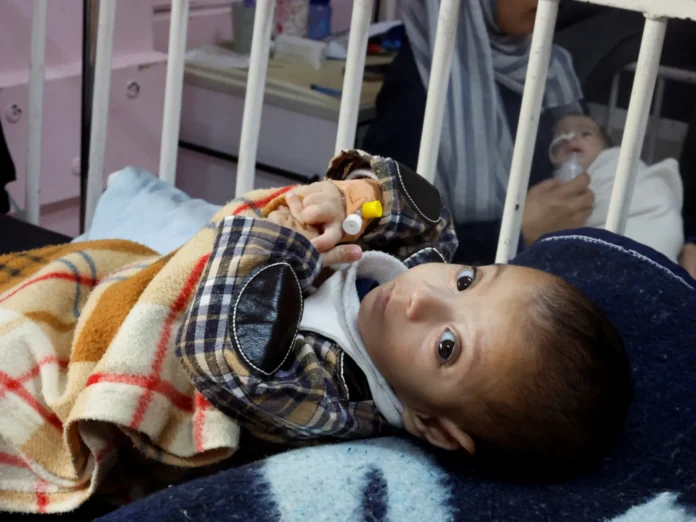Hospitals in Gaza have reported a surge in deaths from malnutrition and starvation, with at least 36 people, most of them being children, dying in recent days as the humanitarian crisis deepens under Israel’s blockade.
Mohammed Abu Salmiya, head of Al-Shifa Hospital in Gaza City, said Tuesday that 21 children had died over the past three days alone in hospitals across the territory. The deaths were recorded at Al-Shifa, Al-Aqsa Martyrs Hospital in Deir el-Balah, and Nasser Hospital in Khan Yunis.
“We are heading towards alarming numbers of deaths due to the starvation inflicted on the people of Gaza,” he told reporters, adding that new cases of severe malnutrition arrive “every moment.”
Gaza’s health authorities later announced an additional 15 starvation-related deaths, including four children, in the past 24 hours. That brings the total number of recorded deaths from hunger and malnutrition since March to 101 — 80 of them children — amid what they called “a rapidly deteriorating humanitarian situation.”
UNRWA, the UN agency for Palestinian refugees, also reported on Tuesday that its own staff have been fainting from hunger.
“They are being starved,” the agency posted on social media, urging Israel to “lift the siege” and allow full access for food and medicine.
According to the UN human rights office, hospitals are so overwhelmed with patients “in a state of severe exhaustion caused by a lack of food” and that many more could be dying unreported. It accused Israel of militarizing humanitarian aid and interfering with its delivery.
Photographs from Gaza have shown infants and children with visible signs of wasting and severe malnutrition. According to the National Institutes of Health, the condition can cause dangerous loss of fat and muscle, poor circulation, and profound fatigue.
The worsening food crisis follows the collapse of a six-week ceasefire in March, when Israel imposed a total blockade on Gaza and halted all aid. Though some trucks carrying food and medicine were permitted to enter in late May, UN agencies and aid groups have said the supplies are nowhere near enough for the enclave’s more than two million residents.
Carl Skau, deputy director of the World Food Program, described the conditions he witnessed during a July visit to Gaza City as “the worst” he had ever seen.
The Israeli Medical Association, which represents most doctors in Israel, added its voice to the calls, urging the military to allow the delivery of medical supplies and basic humanitarian aid. Chairman Zion Hagay warned in a letter to the army chief that blocking aid “violates medical ethics, morality, and international humanitarian law,” especially in light of reports that at least 73 people have died while waiting for food deliveries.
Gaza’s health ministry reported Tuesday that more than 59,000 Palestinians have been killed since Israel’s military campaign began in response to the Hamas-led attacks on October 7, 2023, which left about 1,200 Israelis dead and 251 taken hostage. The ministry said 8,268 of those deaths occurred since March 18, when Israel resumed full-scale operations in the enclave.
As the crisis escalates, international agencies continue to warn that without immediate, unrestricted humanitarian access, the toll, particularly among children, will only rise.

